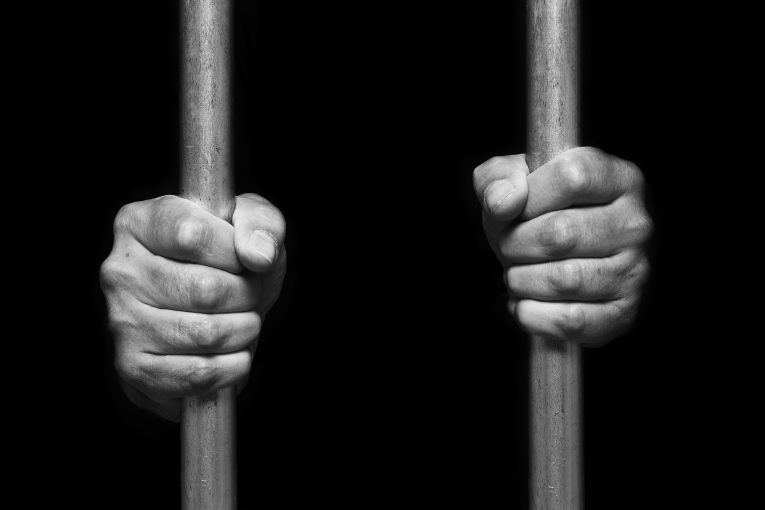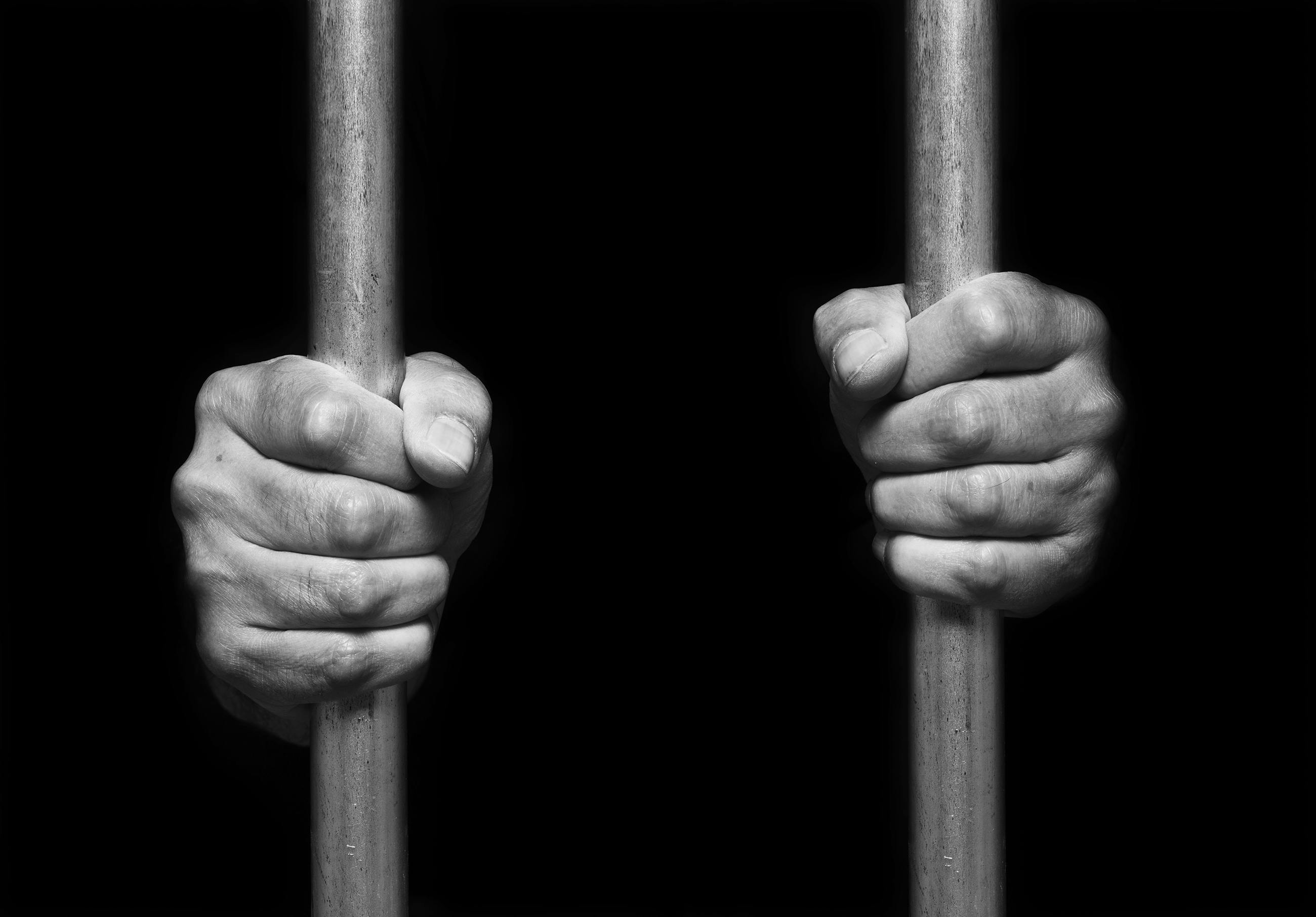
 By Nina Hall
By Nina Hall
“I’m not holding grudges against nobody, especially not justice,” said Mark Denny, a man who had served three decades in prison for a crime he did not commit.
Denny was only 16 when he was convicted of a heinous gang rape and robbery that occurred at a Burger King in Brooklyn—he was sentenced to 19-57 years, and served 30 of those years maintaining his innocence the entire time.
Denny spoke on a panel Wednesday, sponsored by the Institute for Innovation in Prosecution at John Jay College. He explained he tried to educate himself and serve as a paralegal while in prison.
He then reached out to organizations outside of the prison, when he got into contact with Nina Morrison, the senior litigation counsel of the Innocence Project. Morrison wrote Denny a letter telling him that they would look into his case. 
“When Nina stepped into the picture,” Denny said, “It was like a beam of hope. It was the lifeline that I really needed.
“I was able to use that letter as a shield because it gave people a chance to see it wasn’t just my claim, you know,” Denny told the panelists as he began to get choked up.
“I had a powerful organization that was actually taking heed to what I’m saying and going out of their way to prove what I’m saying is true. So that paper, it became like, it liberated me in a certain way in that moment,”
He went on to explain that receiving that letter changed his experience in prison significantly because of how other inmates treated him. “Rape has an ugly stigma,” Denny stated, “And no one likes you, even the worst person in the prison looks down on someone who’s in prison for rape.”
With Morrison’s letter, Denny felt that he could socialize more with the prison population since he had proof backing his claim that he might be innocent.
Morrison briefly touched upon the process that the Innocence Project goes through when choosing which cases to take on, when asked by moderator Debo Adegbile, partner and chair of Anti-Discrimination practice.
“We get thousands of requests for legal assistance from around the country. We accept typically only two percent of the cases from people who write to us,” Morrison recounted. “For many years, and including when we took on Mark’s case, we were only taking cases where DNA evidence had the potential to clear our client,”
However, Denny’s glimmer of hope seemed to go out rather quickly when Morrison had to reach out to him a short while later and explain that the DNA evidence had been lost.
While speaking to the panelists, Denny became extremely emotional in recounting his 30 years of trauma. “My whole entire incarceration I was hoping and holding onto the fact that if they could get ahold of that evidence [DNA] that would be it” Denny said as he wiped tears from his eyes.
“In my heart, the evidence was always there. The truth was always there,” Denny sobbed. “It was the ugly nature of the case that blinded everyone, but it was always there,” Denny cried, his voice cracking from distress.
When asked how Denny felt after the news broke that the evidence had been lost, Denny told panelists how deeply rooted his hurt was. “I was overwhelmed with hurt, because, you know, to me as a kid growing up, what people thought about me means so much,” Denny sighed sadly.
He added, “I actually lived for that. So it was like the very thing that I strived off of to make me who I was, it was no longer there.”
However, there was still hope for Mark Denny coming from the Kings County District Attorney’s office, the very same department that had prosecuted him.
Lisa Perlman from the DA’s office was there to help in the investigation of Denny’s case, which both she and Morrison explained had many errors in it.
“There was a real issue with the identification procedure here in that Mark was shown to the victim in a photo array and was not picked out, but two days later was put into a lineup and then identified,” Perlman explained. “And again, you know he was the only person common to both, and just to sort of spell it out, was the victim identifying him from the crime or was she recognizing him from the photo she had seen?”
This was one of many inconsistencies that occurred within Denny’s case, and another major issue in the case proved to be the victim’s memory and her construction of the events.
Perlman explained that the woman had a cloth covering her face for most of the assault that was taking place in the dark, and furthermore she believed she had passed out from shock at some point.
Jennifer Dysart, an associate professor of psychology at John Jay College, was brought onto the case to testify as an expert witness about the reliability of memory.
“There were over 10 factors, 10 eyewitness identification factors relevant in this case that all likely served to undermine the witnesses’ ability to be able to have a strong memory of the perpetrators in this case,” Dysart explained.
Dysart said that, initially, the victim had no recollection whatsoever of the event, but over time was able to recall more details. However, this still did not imply that Denny had participated in the assault.
The victim was able to pick Denny out of a lineup, but as previously stated, she had already been shown Denny’s picture two days prior to the lineup, which Dysart attested could have influenced her memory.
Dysart went on to explain that reinforcement from the police could actually alter the way in which a victim remembers a crime, “After [the victim] made a selection, if their identification is supported, they’re given feedback like, ‘Good job, that’s who we thought it was,’ or ‘you can sleep better tonight knowing we’ve got the guy.’ What a great deal of scientific evidence shows is that it makes witnesses not only more confident, but it actually changes the way in which they think about the entire event.
“They believe they had a better view, or think that they were paying closer attention, they believe their memory is stronger than it actually is just by getting that feedback,” she added.
In simpler terms, victims can be coached and conditioned subconsciously into thinking the perpetrator of a crime is who the police believe it to be. This was what happened in Denny’s case.
In order to further prove Denny’s innocence, the team not only had to establish that there were inconsistencies in the victim’s testimony, but also that Denny was not at the scene of the crime.
One of Denny’s co-defendants tried separately from him ended up aiding attempts to exonerate him.
Originally, there were two victims in this case, one male and female. However, the male passed away during the course of the investigation, so his witness testimony had to be thrown out, and with that the case of Denny’s alleged co-defendant.
“[The co-defendant] spoke to us at great length and really broke down, and did not know who was making a claim of innocence but was able to tell us that Mark Denny was not at the scene,” Perlman explained.
Denny’s cousin was at the scene and involved in the crime which originally prompted police to suspect Denny himself after he was seen in a car with his cousin shortly after the crime. Denny’s cousin eventually went on to say that Denny was not present at the time of the crime, and that there were only three people involved.
Denny’s story is a prime example of the kind of tragedies that occur within the justice system, but, instead of being resentful for all his lost time, Denny is extremely forgiving.
“I’m not holding no grudges against nobody,” He said. “Especially not the justice system because it’s hard to judge matters that you didn’t see.
“I believe it was an honest error on the part of justice,” Denny said, “And I’ve learned in prison, there’s nothing wrong with making errors, but you have to correct it, they did that to me, and I’m thankful.”
Denny even went a step beyond forgiveness to understanding. In what was an incredibly emotional part of his interview Denny stated, “If the shoe was on the other foot, I probably would have did that to me, too. Because rape is ugly. It’s very ugly.
“As I learned in prison, the only thing a person has is their body. And the only power we have over that is the power to consent. And to take that away from a person, is the beginning of all evil, of all injustices,” Denny said.
Nina Hall is a sophomore from Colorado at Santa Clara University studying English and Sociology.
To sign up for our new newsletter – Everyday Injustice – https://tinyurl.com/yyultcf9
Support our work – to become a sustaining at $5 – $10- $25 per month hit the link:




